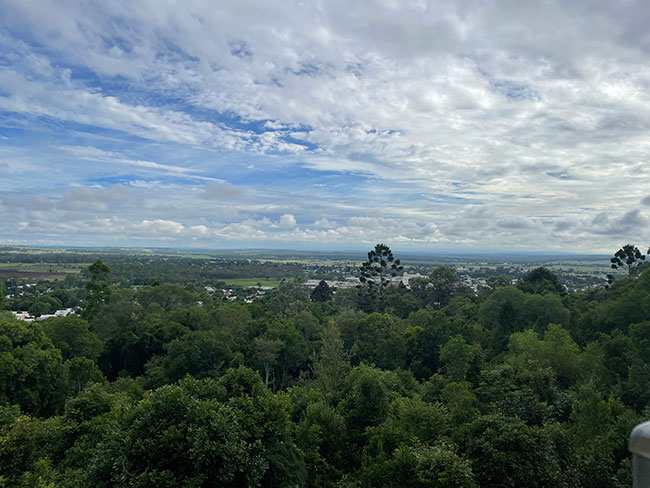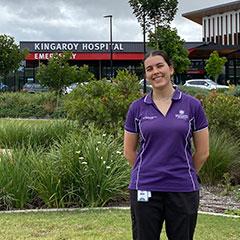Embarking on a rural placement has been one of the most eye-opening and rewarding experiences of my midwifery training. The opportunities and challenges in Kingaroy have provided a unique perspective that is quite different from the urban settings I'm used to.
Here’s a glimpse into my journey and the countless benefits I’ve discovered working in a rural area.
Jump to a section:
Unexpected opportunities
One of the most surprising aspects of my rural placement has been the sheer number of opportunities to practice new skills that aren’t often available in tertiary hospitals. With less time pressure in rural settings, the midwives I've worked with have been incredibly supportive, offering me numerous chances to attempt new skills. This hands-on experience has been invaluable in building my confidence and competence as a midwife.
Day-to-day life in a rural setting
Living and working in a rural area like Kingaroy has its own unique rhythm. The commute to the hospital is incredibly short, and there's never any traffic, which is especially helpful when I get called out last minute for births!
The Midwifery Group Practice (MGP) model here includes home visiting services up to six weeks postnatal, so I’ve spent a lot of time on the road, learning from the midwives and getting involved in the full continuum of midwifery care. The midwives have been very accommodating with my university requirements, allowing me to organise study time around appointments and births.

A tight-knit community
What I enjoy most about providing care in a rural setting is the sense of community. In maternity care, everyone knows everyone. It’s wonderful to have obstetricians call you by name and go out of their way to teach you.
Working in a small MGP team means they all know where I’m at in terms of competencies, goals, and birth numbers. This continuity of mentorship is something I’ve found lacking in larger, tertiary hospitals where you often work with a different midwife every shift.
Overcoming challenges
Moving away from family and friends to a rural area, I initially worried about feeling isolated. However, I’ve made many new friends and found midwifery mentors who have been incredibly supportive. The drive back to Brisbane every few weeks doesn’t feel long with a good podcast or playlist, and I’ve grown accustomed to it.
Unexpected lessons
Before my placement in Kingaroy, I didn’t think working in Midwifery Group Practice would be for me. However, seeing a well-supported team of midwives in action has made me fall in love with this model of care. Now, I hope to secure a job in rural MGP one day.
Shaping my future
This rural placement has deepened my appreciation for continuity of care, and I will definitely be applying to rural hospitals in my grad year. Working in big metro hospitals often feels like the only career path, but I feel lucky to have experienced another way to practice midwifery.
Advice for future rural placements
I couldn’t recommend a rural placement enough. You end up feeling much more like part of the multidisciplinary team, making meaningful contributions to the women and families you care for.
There are plenty of opportunities to make friends and get involved in the community, which makes the experience truly enjoyable. I’ve bonded with OTs, speech therapists, physios, and dieticians – both students and grads. Together, we’ve enjoyed weekly trivia, game nights, and drives to watch sunsets at Mt Wooroolin.
If you take these opportunities and make the most of them, your placement will fly by and leave you with memories and skills that will shape your future career.
Interested in going on a rural or regional placement? Find out more about what you can expect from a rural or regional placement, how UQ can assist you on placement, and how to apply.

